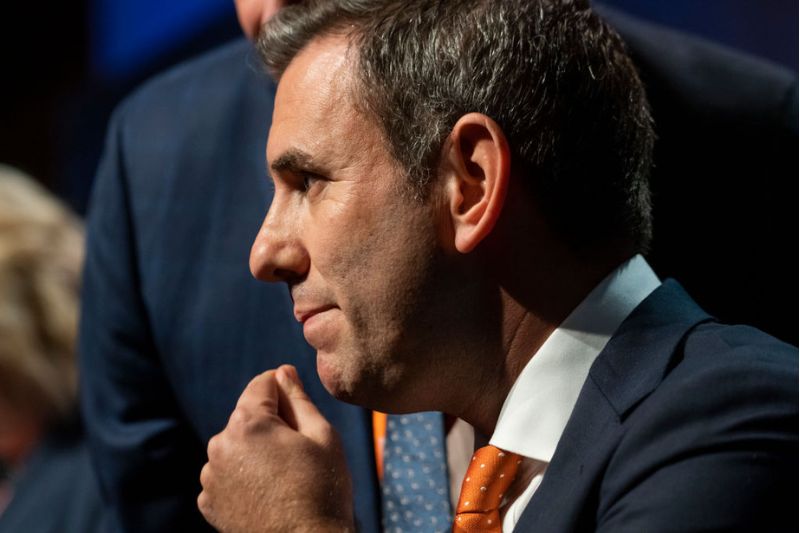All eyes will now be on the Treasurer, Dr Jim Chalmers as he prepares to hand down the federal budget in May. The Treasurer has the unenviable task of steering an economy impacted by low growth, high inflation and at a time where cost-of-living increases are hurting Australian households. This task is made all the more complicated because increased spending by government risks driving inflation higher and increasing government debt.

Despite the Government’s fiscal challenges, the electorate is demanding relief from cost-of-living pressures, better health and aged care services, as well as increased investment in important social and economic infrastructure. The options open to the Government in meeting the demands of the electorate include raising more revenue, redirecting current spending and/or increasing the national debt. Each of these have political and economic consequences, so the Government will tread carefully in whatever decision it makes in addressing these demands.
In today’s political environment, the ability of government to ‘take away’ a concession or service from one group of beneficiaries to fund another is near impossible. In reality if we want the government to expand and improve the services it provides then it needs to collect enough revenue to fund the expansion. However, attempts to raise more revenue through increased taxes is politically fraught, regardless of the merits in doing so.
There is in effect a disconnect between what the electorate demands of its governments and the changes to our tax and transfer system they are willing to embrace to pay for them. The question is why?
It seems we have a trust issue. The Edelman Trust Barometer 2022, which surveyed more than 36,000 people across 28 countries including Australia, reported that 6 in 10 respondents said their default tendency is to distrust something until they see evidence that it is trustworthy. Further, nearly one out of every two respondents view government and media as divisive forces in society.
Over the past decade the Australian public has witnessed governments at their very best and worst. The effort of Australia’s federal, state and territory governments in managing the COVID-19 pandemic was almost without peer, especially when we consider the human and economic tragedy which was wreaked by the pandemic across Europe and the USA. However, scandals such as Robodebt and sports rorts demonstrated some of the very worst of our political institutions, one where the needs of the electorate were secondary to the government’s ideology, hubris and hold on political power. Asking the electorate to contribute more of their earnings to the government where questions around institutional integrity and competence still exist is, at the very least, problematic.
'The electorate should not expect miracles from this budget. However, they should expect measures which reduce financial hardship for households, reflecting a government which is in tune with an electorate suffering from soaring cost-of-living pressures.'
While the electorate has voted out the Morrison Government there is still work to be done to restore faith in our political institutions. On 9 May the Treasurer will hand down the Albanese Government’s 2023/24 budget. The electorate should not expect miracles from this budget. However, they should expect measures which reduce financial hardship for households, reflecting a government which is in tune with an electorate suffering from soaring cost-of-living pressures. Measures such as an increase to the Medicare rebate, a one-off lift to pensions and jobseeker allowance and an extension to the tax offset for low and middle income earners are all options open to the Government in this coming budget.
What the budget might fail to deliver in meaningful cost-of-living relief can be partly offset by offering the electorate greater budget transparency and hope. The Treasurer will need to be upfront with the electorate as to why the Government has funded certain measures and not others. This transparency must go beyond the financial year 2023/24 budget and include proposed cuts to programs which might take effect within the period of the forward estimates.
This upcoming budget should also include an economic blueprint which lays out the path the Albanese Government intends to take to raise the revenue needed to address the many demands on its finances over the short to medium term. Reforms to our tax and transfer system need not be radical but they do need to be substantive and connected.
This budget may well define the Albanese government and what we, as a nation, can achieve when there is transparency, integrity and trust in our political institutions.
Joe Zabar is the Chair of Mercy Works Ltd and a Visiting Fellow with the Tax and Transfer Policy Institute, ANU.
Main image: Treasurer Jim Chalmers Delivers his Budget Address at Parliament House on October 25, 2022 in Canberra, Australia. (Martin Ollman/Getty Images)